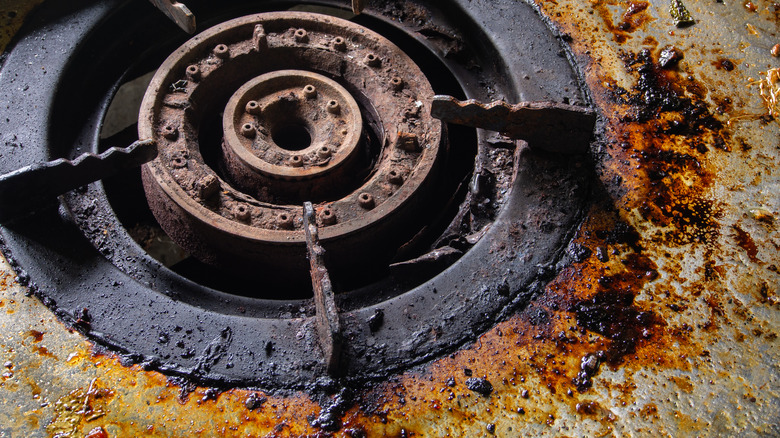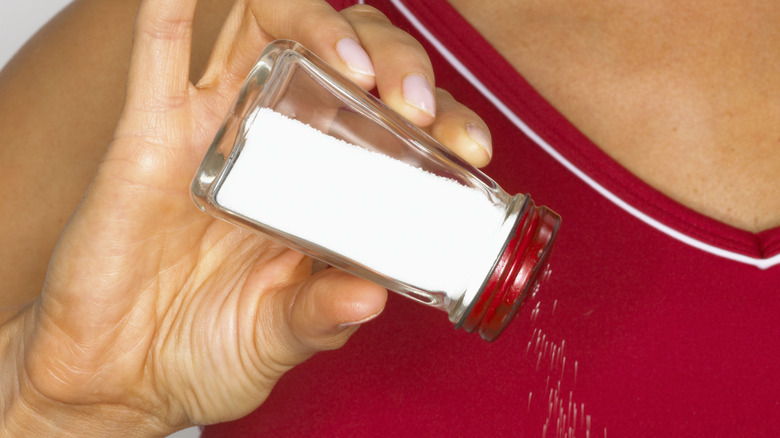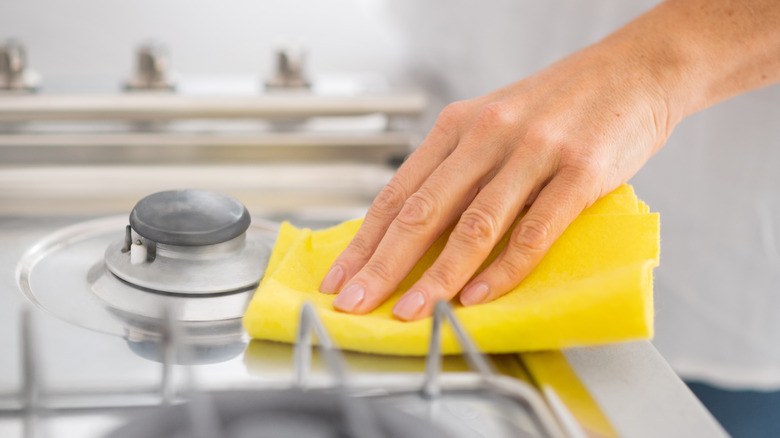The Salt Hack That Nearly Eliminates Excessive Grease Splatter
Cooking is fun, but, boy, it sure can be messy work, especially when you use cooking oil. If you're sautéing, frying, or searing any sort of food on the stovetop, you're likely using a cooking oil like olive, avocado, or other vegetable oils. If this is the case, you're already familiar with the dreaded mess of splattered gunk all over the stove.
Cleaning oil that has splashed all over the kitchen after dinner is probably as unpopular a task as scrubbing dirty dishes. We don't even want to talk about the cringeworthy pain from hot oil jumping out of the pan to burn your skin or ruin your favorite shirt. That hot liquid can be dangerous and cause injuries if it gets too aggressive with popping and sputtering.
Luckily, one simple hack is a game-changer when it comes to controlling that rowdy oil. If you don't want your oil to splatter when cooking with a hot-oiled pan, simply add a little salt to it. Yes, it's that simple.
Salt is your secret weapon for controlling oil
It's worth noting that adding a bit of salt to your oil won't eliminate splatters completely, but it will reduce the amount of popping when you add your meat or vegetables. Another critical thing to point out is that this hack is not for deep frying, which, if you're frying food at home, requires its own tips and hacks, but for cooking meat, fish, or veggies in an oiled pan.
The trick is adding just a pinch or two of salt to the hot oil in the pan as it shatters or bubbles. Don't add too much, or you'll ruin the flavor because a little goes a long way. Another tip to reduce the wild reaction of hot oil is to completely dry off any vegetables or meat you use with a paper towel. The water content of food mixing with oil is a top culprit in sudden splattering that causes messes — and possible injuries. Breading and flouring your foods can also help absorb the excess liquid from the food during the cooking process.
Cleaning a stove doesn't have to be a chore
Salt isn't the only way to control oil from spraying out of the pan while you cook. Tools like a typical grease splatter screen can be placed over the frying pan to catch any escaping oil, while a frywall — a silicone sheet that wraps around your skillet during cooking — will save your surfaces from caked-on oil and your skin from hot splashes.
Another tip is to gradually warm up your oil in the skillet, allowing trapped moisture in the oils to evaporate. Also, watch the temperature closely because if your frying pan gets too hot, the food will shrink quicker, releasing moisture that leads to splattering.
Even though salt helps reduce the mess, it's an unavoidable fact of cooking that stoves will get dirty, which can create fire hazards or stains that aren't easy to remove. But cleaning can be a lot simpler with a few stove-cleaning hacks that anyone can use.


